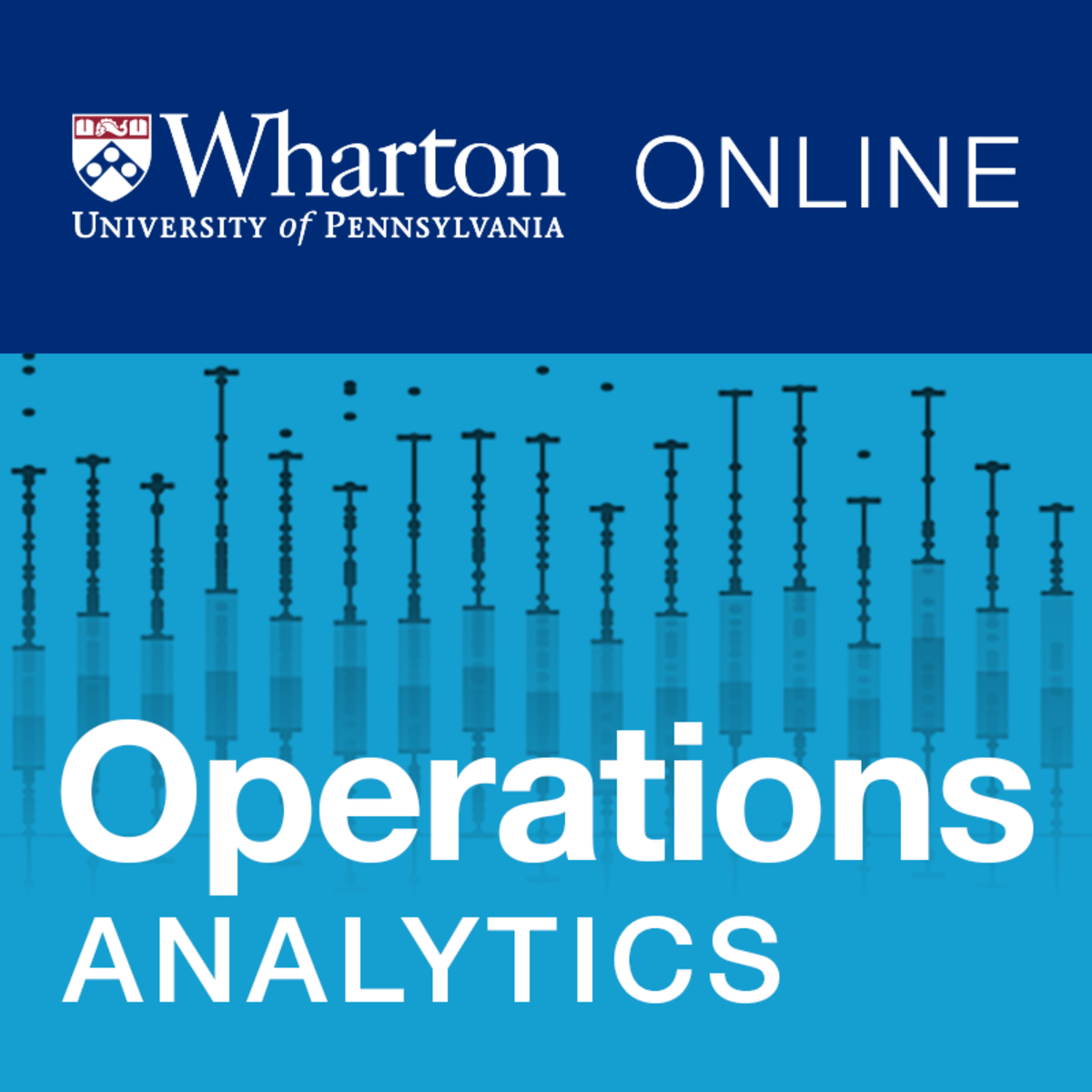Supply Chain Manager
Supply Chain Manager: Navigating the Flow of Global Commerce
Supply Chain Management (SCM) is the oversight of materials, information, and finances as they move in a process from supplier to manufacturer to wholesaler to retailer to consumer. At its core, it's about getting the right product to the right place, at the right time, in the right quantity, and at the right cost. Supply Chain Managers are the professionals who orchestrate this complex flow, ensuring efficiency and effectiveness across the entire network.
Working as a Supply Chain Manager can be incredibly dynamic and rewarding. You might find the challenge of solving complex logistical puzzles engaging, using analytical skills to optimize routes, inventory, and supplier choices. The global nature of the role often provides exposure to international markets and diverse business cultures, which many find exciting. Furthermore, the direct impact SCM has on a company's bottom line and customer satisfaction offers a tangible sense of accomplishment.
Core Responsibilities of a Supply Chain Manager
The role of a Supply Chain Manager encompasses a wide range of critical duties essential for the smooth operation of commerce. These responsibilities require a blend of analytical prowess, strategic thinking, and strong interpersonal skills.
Demand Forecasting and Inventory Optimization
Predicting future customer demand is a cornerstone of SCM. Managers analyze historical data, market trends, and promotional plans to create forecasts. Accurate forecasting helps prevent stockouts or costly overstock situations.
Based on forecasts, managers optimize inventory levels. This involves balancing the costs of holding inventory (storage, insurance, obsolescence) against the risks of not having enough stock to meet demand. Techniques like Just-In-Time (JIT) or safety stock calculations are often employed.
Think of it like stocking your kitchen pantry. You want enough food so you don't run out mid-week (stockout), but not so much that food expires or takes up too much space (overstock/holding cost). Forecasting helps you predict your family's appetite, and optimization helps you decide how much pasta or cereal to buy.
These courses provide insights into planning resources and managing inventory effectively within the supply chain.
Supplier Relationship Management
Supply Chain Managers are responsible for identifying, evaluating, and selecting suppliers. This involves assessing their reliability, quality standards, cost-effectiveness, and ethical practices. Building strong, collaborative relationships is key.
Negotiating contracts regarding price, delivery terms, and quality expectations is a significant part of the role. Ongoing performance monitoring ensures suppliers meet agreed-upon standards. Effective communication and conflict resolution are vital for maintaining healthy long-term partnerships.
Managing supplier risk is also crucial. This includes having contingency plans for supplier failures or disruptions and ensuring suppliers comply with regulations and ethical sourcing standards.
These resources offer valuable knowledge on managing supplier relationships and analyzing supply markets.
Logistics Coordination
This involves managing the physical movement of goods. Supply Chain Managers oversee transportation (trucking, shipping, air freight), warehousing (storage, distribution centers), and order fulfillment. They aim to optimize routes and methods for speed, cost, and reliability.
Coordinating international logistics adds complexity, involving customs regulations, tariffs, and international shipping documentation. Managers must navigate these requirements efficiently to avoid delays and penalties.
Efficient logistics ensures products reach their destination on time and in good condition. It requires careful planning, execution, and often, the use of sophisticated tracking and management software.
These courses cover fundamental and advanced aspects of logistics within the supply chain.
Crisis Management and Disruption Response
Supply chains are vulnerable to disruptions like natural disasters, geopolitical instability, supplier bankruptcies, or pandemics. A key responsibility is developing contingency plans and responding effectively when crises occur.
This involves quickly assessing the situation, identifying alternative suppliers or transportation routes, communicating with stakeholders, and managing the impact on inventory and customer deliveries. Adaptability and problem-solving under pressure are essential.
Post-crisis analysis helps improve future resilience. Managers learn from disruptions to build more robust and flexible supply chains capable of weathering future storms.
Understanding how to manage disruptions is critical, especially in contexts like the recent global events.
Building the Foundation: Education and Skills
Entering and succeeding in Supply Chain Management requires a combination of formal education, specialized knowledge, and a diverse skill set. Building this foundation is crucial for navigating the complexities of the field.
Formal Education and Certifications
A bachelor's degree is typically the minimum requirement for entry-level positions. Common fields of study include Business Administration, Logistics, Supply Chain Management, Operations Management, or Industrial Engineering. These programs provide foundational knowledge in business principles, quantitative analysis, and operations.
For those seeking advanced roles or specialization, a Master's degree in Supply Chain Management or an MBA with a concentration in SCM can be highly beneficial. These programs offer deeper insights into strategic SCM, global operations, and leadership.
Professional certifications are highly valued in the industry and demonstrate expertise. Popular certifications include the Certified Supply Chain Professional (CSCP) and Certified in Planning and Inventory Management (CPIM) offered by the Association for Supply Chain Management (ASCM, formerly APICS), or the Certified Supply Chain Analyst (CSCA) from ISCEA. Online courses are excellent resources for preparing for these certification exams.
These introductory courses offer a strong starting point for understanding the fundamentals of SCM, regardless of your current educational background.
These resources delve deeper into strategic and decision-making frameworks crucial for SCM professionals.
These books provide comprehensive overviews and essential knowledge for managing supply chains.
Essential Skills for Success
Beyond formal education, specific skills are crucial. Strong analytical and quantitative abilities are needed to interpret data, identify trends, and make informed decisions regarding inventory, logistics, and forecasting.
Problem-solving skills are paramount. Supply Chain Managers constantly face unexpected challenges and must quickly devise effective solutions. Excellent communication and negotiation skills are vital for interacting with suppliers, customers, and internal teams across different departments and cultures.
Leadership and teamwork capabilities are important, especially in managerial roles, for guiding teams and collaborating effectively. Proficiency with technology, including ERP systems, data analysis tools (Excel, specialized software), and potentially newer technologies like AI or blockchain, is increasingly essential.
These courses focus on the analytical side of SCM, a highly sought-after skill set.
These books offer insights into using analytics and optimizing supply chain performance.
The Supply Chain Career Path
A career in Supply Chain Management offers diverse opportunities for growth and advancement. The path typically progresses from entry-level analytical or coordination roles to strategic leadership positions.
Starting Out: Entry-Level Roles
Graduates often begin in roles like Supply Chain Analyst, Logistics Coordinator, Procurement Analyst, or Inventory Planner. These positions focus on specific aspects of the supply chain, such as data analysis, tracking shipments, managing purchase orders, or monitoring stock levels.
These roles provide essential hands-on experience and a foundational understanding of how different parts of the supply chain operate and interact. Responsibilities might include generating reports, communicating with suppliers or carriers, and resolving operational issues.
Success in these roles requires attention to detail, analytical thinking, and effective communication. They serve as a crucial stepping stone for developing the skills needed for management positions.
Consider exploring these related entry points and analytical roles:
Moving Up: Managerial Positions
After gaining several years of experience and demonstrating strong performance and leadership potential, professionals can advance to Supply Chain Manager roles. This transition involves broader responsibilities, overseeing larger segments or the entire supply chain process.
Managers focus more on strategic planning, process improvement, team leadership, and budget management. They make critical decisions regarding supplier selection, logistics strategies, inventory policies, and technology implementation.
This level requires a deeper understanding of business objectives and the ability to align supply chain activities with overall company goals. Strong leadership, negotiation, and strategic thinking skills become increasingly important.
These management-focused courses can help develop the necessary strategic perspective.
Reaching the Top: Executive Leadership
Experienced Supply Chain Managers can progress to senior leadership roles such as Director of Supply Chain, Vice President (VP) of Operations, or even Chief Supply Chain Officer (CSCO). These executive positions involve setting the long-term vision and strategy for the company's entire supply chain and operations.
Responsibilities include managing large teams, overseeing global operations, driving major transformation initiatives, managing significant budgets, and representing the supply chain function at the highest levels of the organization. Strategic foresight and influence are key.
These roles require extensive experience, a proven track record of success, and exceptional leadership capabilities. Executives must navigate complex global challenges and ensure the supply chain provides a competitive advantage.
Pivoting and Specializing
The skills developed in Supply Chain Management are highly transferable. Professionals may pivot into related fields like Management Consulting (specializing in SCM), Procurement Management, or broader Operations Management roles.
Within SCM, specialization is also common. Professionals might focus on areas like sustainable supply chains, supply chain analytics, risk management, specific industries (e.g., healthcare, tech), or implementing advanced technologies.
Continuous learning, often through online courses or certifications, supports both pivoting and specialization, allowing professionals to adapt to evolving industry needs and pursue specific interests.
Explore these related career paths:
Tools of the Trade: Technology in SCM
Modern Supply Chain Management relies heavily on technology to manage complexity, improve efficiency, and provide visibility. Proficiency with relevant software and understanding emerging technologies are crucial for today's SCM professionals.
Enterprise Resource Planning (ERP) Systems
Enterprise Resource Planning (ERP) systems are foundational software platforms used by many organizations. Systems like SAP or Oracle integrate various business functions—including SCM, finance, HR, and manufacturing—into a single database. This integration allows for seamless data flow and process coordination across the company.
Within SCM, ERPs help manage procurement, inventory levels, order processing, and logistics planning. They provide a centralized view of operations, enabling better decision-making and control.
Familiarity with ERP concepts and specific systems relevant to one's industry is often a requirement for SCM roles. Online courses can provide valuable training on ERP functionalities and configuration.
These courses offer insights into specific ERP systems and related processes commonly used in supply chain roles.
Analytics, AI, and Machine Learning
Data analytics plays a huge role in modern SCM. Tools ranging from advanced Excel techniques to specialized analytics software (Tableau, Qlik Sense) are used to analyze performance, identify bottlenecks, optimize inventory, and improve forecasts.
Artificial Intelligence (AI) and Machine Learning (ML) are increasingly applied for more sophisticated analysis. AI can enhance demand forecasting accuracy by identifying complex patterns, optimize logistics routes in real-time, and predict potential disruptions.
Understanding how to leverage data and these advanced analytical tools is becoming a key differentiator for Supply Chain Managers seeking to drive efficiency and innovation. Exploring resources in Data Science can be highly beneficial.
These courses cover analytics and AI techniques specifically applied to supply chain challenges.
Visibility and Tracking Technologies
Real-time visibility into the location and status of goods is critical. Technologies like the Internet of Things (IoT) enable this through sensors placed on shipments or in warehouses, providing constant updates on location, temperature, humidity, etc.
Blockchain technology is emerging as a tool to enhance supply chain transparency and traceability. By creating a secure, shared, and immutable ledger of transactions, blockchain can help verify the provenance of goods, track shipments accurately, and improve trust among partners.
These technologies help managers monitor operations closely, respond quickly to issues, and provide accurate information to customers, ultimately improving efficiency and reliability.
Explore how blockchain and IoT are impacting supply chains with these resources.
Navigating the Global Landscape: Trends and Challenges
Supply Chain Managers operate in a constantly evolving global environment. Understanding major trends, geopolitical shifts, and ethical considerations is essential for navigating complexities and ensuring long-term success.
Global Dynamics and Resilience
The configuration of global supply chains is continually shifting. Debates around nearshoring (moving production closer to home markets) versus traditional globalized models are ongoing, influenced by factors like labor costs, transportation risks, and trade policies.
Recent disruptions, such as the COVID-19 pandemic, have underscored the need for supply chain resilience. Companies are increasingly focusing on building more flexible and robust networks capable of absorbing shocks, as highlighted in reports from institutions like McKinsey & Company. This involves diversifying suppliers, investing in visibility technologies, and developing agile response strategies.
Fluctuating trade policies, tariffs, and geopolitical tensions add further layers of complexity. Supply Chain Managers must stay informed about these dynamics and adapt their strategies accordingly to mitigate risks and ensure continuity of supply.
These courses offer perspectives on managing global supply chains and adapting to disruptions.
Sustainability and Ethical Considerations
There is growing pressure on companies to ensure their supply chains are both environmentally sustainable and ethically sound. This includes reducing carbon footprints, minimizing waste through circular economy principles, and ensuring fair labor practices throughout the supplier network.
Ethical sourcing is a major focus, involving due diligence to avoid issues like child labor, unsafe working conditions, or the use of conflict minerals. Transparency and accountability are key, often requiring robust auditing and reporting mechanisms.
Supply Chain Managers play a critical role in implementing sustainable practices and ensuring compliance with environmental, social, and governance (ESG) standards. This is not only an ethical imperative but also increasingly impacts brand reputation and consumer trust. Resources from organizations like the International Labour Organization (ILO) provide guidance on labor standards.
These courses address the critical intersection of sustainability, ethics, and supply chain management.
These books explore sustainable practices within supply chain management.
Is Supply Chain Management Right for You?
Deciding on a career path involves understanding both the demands of the role and how well they align with your interests and aptitudes. Supply Chain Management is a challenging yet rewarding field suitable for individuals with specific traits and motivations.
Who Thrives in Supply Chain Management?
Successful Supply Chain Managers typically possess strong analytical and problem-solving skills. They enjoy dissecting complex situations, identifying patterns in data, and developing logical solutions. A knack for strategic thinking and planning is also essential.
Adaptability and resilience are crucial, as the field is dynamic and often involves managing unexpected disruptions. Professionals must remain calm under pressure and be able to pivot quickly. Strong communication and interpersonal skills are vital for collaborating with diverse teams, negotiating with suppliers, and managing relationships.
Individuals who are organized, detail-oriented, comfortable with technology, and motivated by achieving tangible results often find SCM to be a fulfilling career.
Making the Transition: Encouragement and Reality
If you're considering a pivot into Supply Chain Management, know that it's achievable, but requires dedication. Many skills from other fields, such as project management, data analysis, operations, or even customer service, are highly transferable and provide a solid foundation.
Be realistic about the learning curve. You'll need to acquire specific knowledge about logistics, inventory management, procurement, and SCM software. Online courses offer an accessible and flexible way to build this foundational knowledge and bridge any skill gaps. Platforms like OpenCourser aggregate thousands of courses, making it easier to find relevant learning paths.
Networking with professionals in the field and potentially pursuing certifications can significantly enhance your transition. While challenging, entering SCM offers the opportunity to work in a critical business function with global reach and significant impact. Guidance on effective self-study can be found in resources like the OpenCourser Learner's Guide.
These courses can provide a strong foundation for those new to the field or looking to transition.
Frequently Asked Questions
As you consider a career as a Supply Chain Manager, several common questions may arise regarding requirements, industry outlook, and work environment.
Is an MBA required to become a Supply Chain Manager?
While not always strictly required, an MBA, particularly one with a specialization in Supply Chain Management or Operations, can be highly advantageous, especially for advancing to senior leadership roles. It provides advanced strategic knowledge, business acumen, and valuable networking opportunities. However, many successful Supply Chain Managers build their careers through experience combined with a relevant bachelor's degree and professional certifications like CSCP or CPIM.
How is automation impacting Supply Chain Management roles?
Automation is transforming SCM, but it's generally augmenting rather than replacing roles. Technologies automate repetitive tasks like data entry, tracking, and basic analysis, freeing managers to focus on more strategic activities like relationship management, complex problem-solving, and strategic planning. The demand is shifting towards managers who are tech-savvy and can leverage automation tools effectively, rather than those performing purely transactional tasks.
What industries hire the most Supply Chain Managers?
Supply Chain Managers are vital across nearly all industries that involve the production or movement of goods. Key sectors include manufacturing (automotive, electronics, consumer goods), retail (e-commerce, brick-and-mortar), logistics and transportation providers, healthcare (pharmaceuticals, medical devices), aerospace, and technology. Government and non-profit organizations involved in logistics and distribution also employ SCM professionals.
Can this career support remote or hybrid work models?
The feasibility of remote or hybrid work depends heavily on the specific role and company. Analytical, planning, and some procurement roles can often be performed remotely or in a hybrid model. However, roles involving direct oversight of warehouse operations, logistics execution, or hands-on supplier management may require more significant on-site presence. The trend towards digitalization is enabling more flexibility in certain SCM functions.
How critical are foreign language skills?
In today's globalized economy, foreign language skills can be a significant asset, particularly for managers dealing with international suppliers, customers, or logistics partners. While English is often the common business language, proficiency in languages relevant to key trading partners (e.g., Mandarin, Spanish, German) can enhance communication, build stronger relationships, and provide a competitive edge, though it's not always a strict requirement depending on the role's scope.
What are typical Key Performance Indicators (KPIs) for performance evaluation?
Performance is often measured using a variety of KPIs. Common examples include inventory turnover rate, on-time delivery percentage, order accuracy rate, transportation costs as a percentage of sales, forecast accuracy, supplier performance metrics (quality, delivery), warehousing costs, and cash-to-cash cycle time. These KPIs help track efficiency, cost-effectiveness, and customer satisfaction within the supply chain.
Conclusion
The role of a Supply Chain Manager is multifaceted, demanding a blend of analytical rigor, strategic insight, technological proficiency, and strong interpersonal skills. It sits at the crossroads of global commerce, directly influencing a company's efficiency, profitability, and customer satisfaction. While the path requires continuous learning and adaptation to navigate complex global dynamics, technological advancements, and ethical considerations, it offers significant rewards in terms of impact and career growth. For those drawn to solving complex puzzles, optimizing intricate systems, and playing a pivotal role in the flow of goods around the world, exploring a career in Supply Chain Management through resources like online courses and books on OpenCourser can be the first step towards a dynamic and fulfilling professional journey.












































